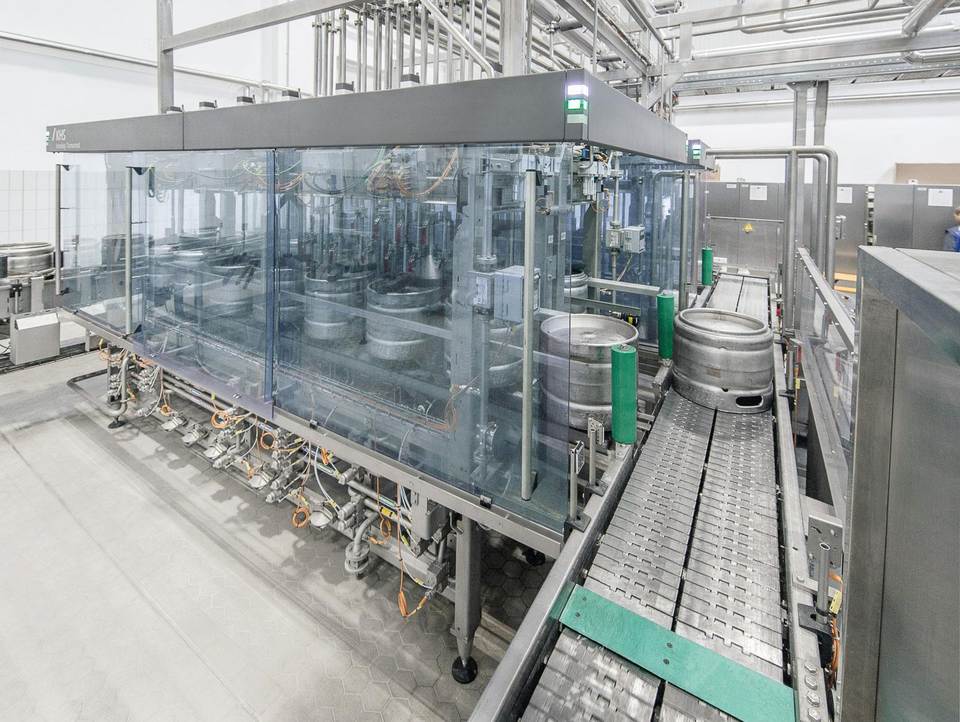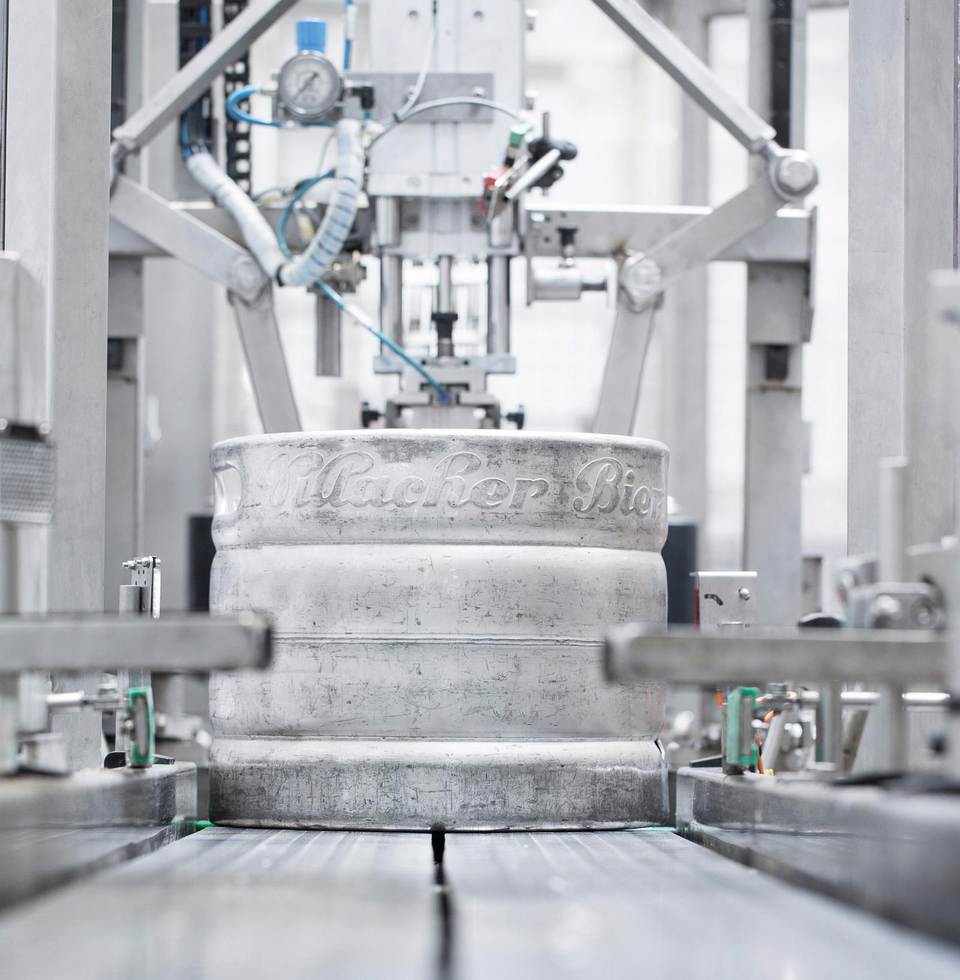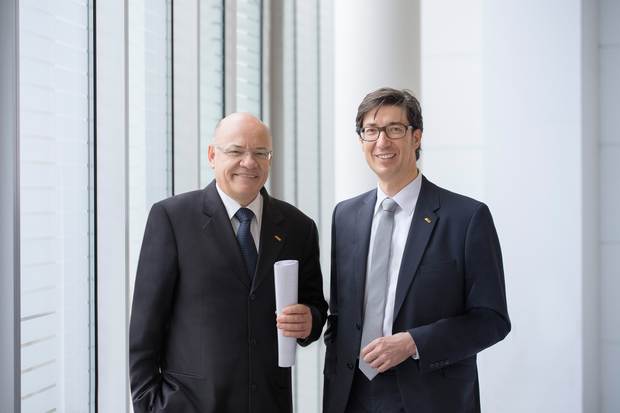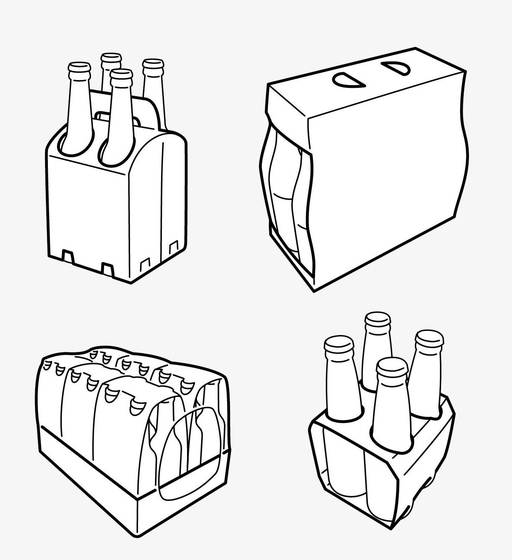For a brewery whose roots go back a long, long way, upholding old traditions is a matter of course. This also applies to the Vereinigte Kärntner Brauereien or united Carinthian breweries who have been successfully writing brewing history with their Villach beer since 1858. The company’s traditional values include the high quality of the raw materials, the great care they take in brewing their products and their variety of quality beer styles. Top products include Villach Märzen, pilsner, dark beer, and bock beer and a selection of mixed beer beverages and soda pops. Nearly everybody has heard of Villach beer here; with 250 employees and an annual turnover of €44 million the company is the epitome of Carinthian beer culture. The brewery is thus deeply rooted in its native region and is an avid sponsor of various cultural and sporting events.
Tradition and progress
Besides being conscious of your history and origins, long-term economic success also requires that you continue to develop and keep your technology up to date. The brewers of Villach are fully aware of this. This is why they regularly invest in the modernization or renewal of their plant equipment. The last time they did so was at the turn of the millennium when the entire production process was very closely scrutinized. “We questioned everything. Where can we improve? Is it worthwhile to modernize or do we need something completely new?” master brewer Manuel Düregger tells us. The analysis resulted in the launch of three major projects that have since been implemented step by step. In 2004 and 2005 the first stage centered on the construction of a new brewhouse and fermentation cellar to replace the previous 40-year-old building.
The second milestone in 2010 was the opening of a fully automated filter cellar connected up to four storage tanks. The third stage in the process saw the brewery shift its focus from production to filling; after 26 years the old keg racking system was totally oversized, for example, and no longer met the brewery’s increased requirements – from hygiene to operating costs. It soon became evident that it wasn’t worth giving the system a general overhaul and in 2011 the owners decided to build and invest in new plant engineering. €11.3 million were provided for the keg racking system, pressure tanks and a bottling shop to ready the production site for the future.
Düregger and his colleagues began trawling the market. “We wanted to find a line for our new keg washing and racking setup which would serve us well for at least the next 25 years,” explains the master brewer. At the end of the selection process the Innokeg Transomat 5/1 from KHS was chosen. The brewery had already worked closely with the systems provider from Dortmund on the refurbishment of their filtration system a few years back. “We knew that manufacturing keg systems is one of the core areas of competence at KHS,” says Düregger. For him, KHS expertise and support are not the only aspects, however. “In addition to the hygienic demands we make of our keg washer system flexibility was of prime importance to us. In addition to 50-, 25-, and 15-liter stainless steel kegs we might also want to use non-refillable kegs in the future. KHS was able to give us this flexibility and this is what ultimately tipped the balance in favor of the Dortmund-based company.”

The new system is also extremely flexible when it comes to keg washing thanks to the five active cleaning stations. A newly developed backwash cleans the keg fitting as required more thoroughly than before and the new media poppet valve has been designed and the materials selected to enable a longer service life. The improved filling system makes the racking process about 5% quicker. Modern metal bending technology reduces the number of horizontal surfaces on the machine frame which improves hygiene and increases safety. Further optimizations allow less CO² and product to be used, cut down on the energy consumption and reduce the effort required for maintenance and servicing.
Challenge met
Before the line could be installed there was another challenge to master; the new building had been planned before the dimensions of the new keg line were known and the space allocated for it now proved to be unsuitable. With KHS’ help another solution was soon found which satisfied all the logistical requirements, however, such as short distances for empty and full kegs. The layout was changed so that the old system could continue producing until shortly before the startup of the new system. Everything was ready in June 2015 when the line went into operation and Franciscan Father Norbert Pleschberger blessed the new keg racking system in the presence of many prominent local and regional figures.
Villach now washes and racks about 270 kegs per hour on the new line. Existing components are also integrated into the system which is working perfectly and has reduced costs compared to the previous setup. Düregger is satisfied when he claims, “The new racking system has made our line performance more effective, decreased the amount of energy used by 15%, and improved quality assurance.”

Initial experience also confirms the filling accuracy and operator friendliness of the Innokeg Transomat 5/1. Hilmar Fickert is head of Mechanical Design Engineering at KHS. He knows which aspects are important to breweries. “Thanks to their especially hygienic and standardized modular design, existing Innokeg Transomat lines can be installed, converted, expanded, or modernized in a very short time indeed. They’re suitable as single machines or as an extension of automatic kegging lines for the medium capacity range.” With five washing heads the Innokeg Transomat 5/1 enables single machine capacities of up to 100 kegs per hour and line outputs of up to 700 kegs per hour. It can be installed across one or two lanes (Mono/Duo series) or in a group and the monitor control enables direct and easy access to all machine functions.
Revamp completed
With the completion of the bottling shop the brewery has ended its revamp – for the time being at least. “Through this program we’ve created ideal long-term conditions with which we can market our beers in their accustomed quality and in a manner which is both economically successful and ecologically sustainable,” summarizes Düregger proudly. The traditional and the modern have forged a promising partnership on the River Drava.
Your contact on this topic
Rainer Deutschmann
Global product account manager for kegging
KHS GmbH, Bad Kreuznach, Germany
Phone: +49 671 852-2977
Email: rainer.deutschmann@khs.com























